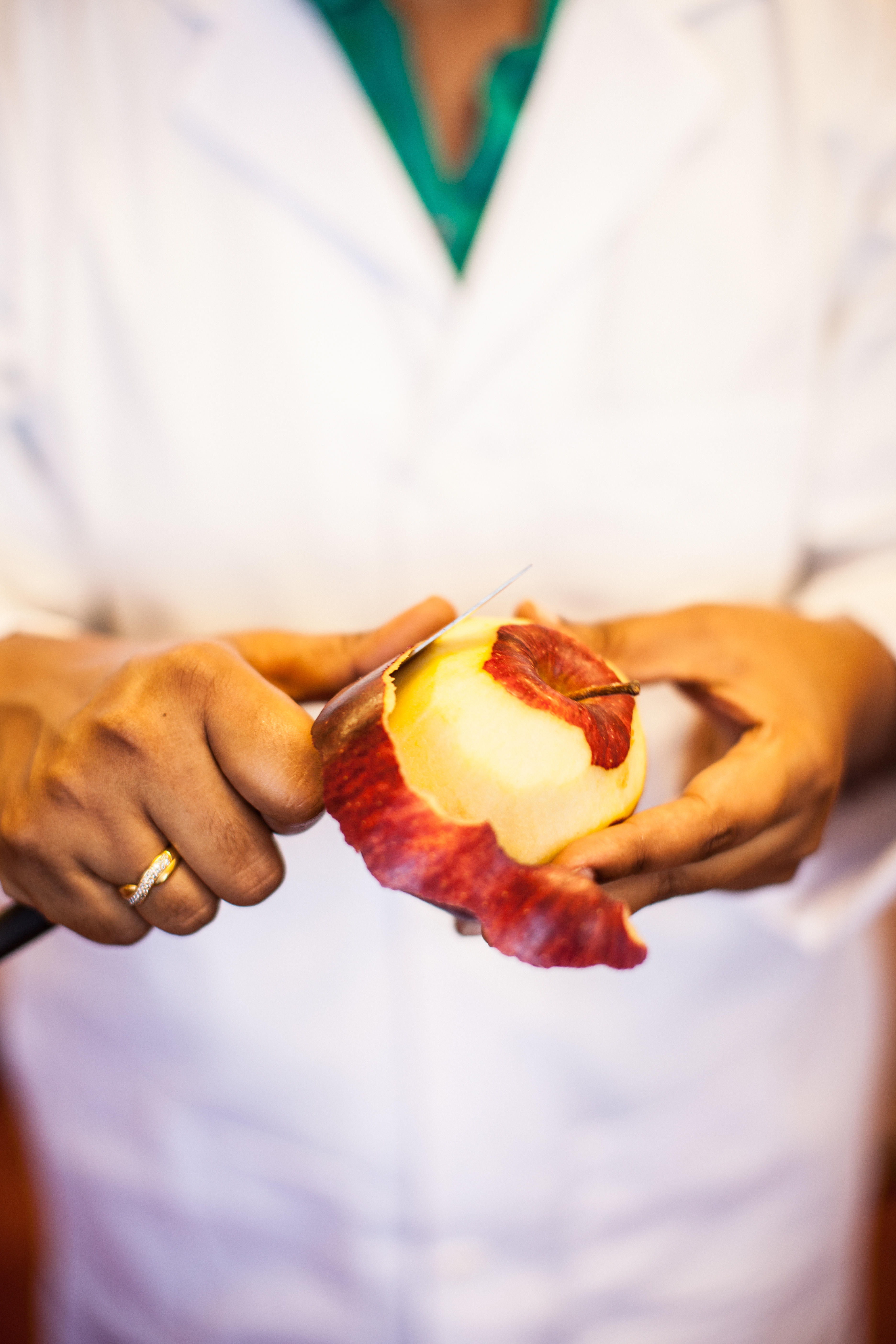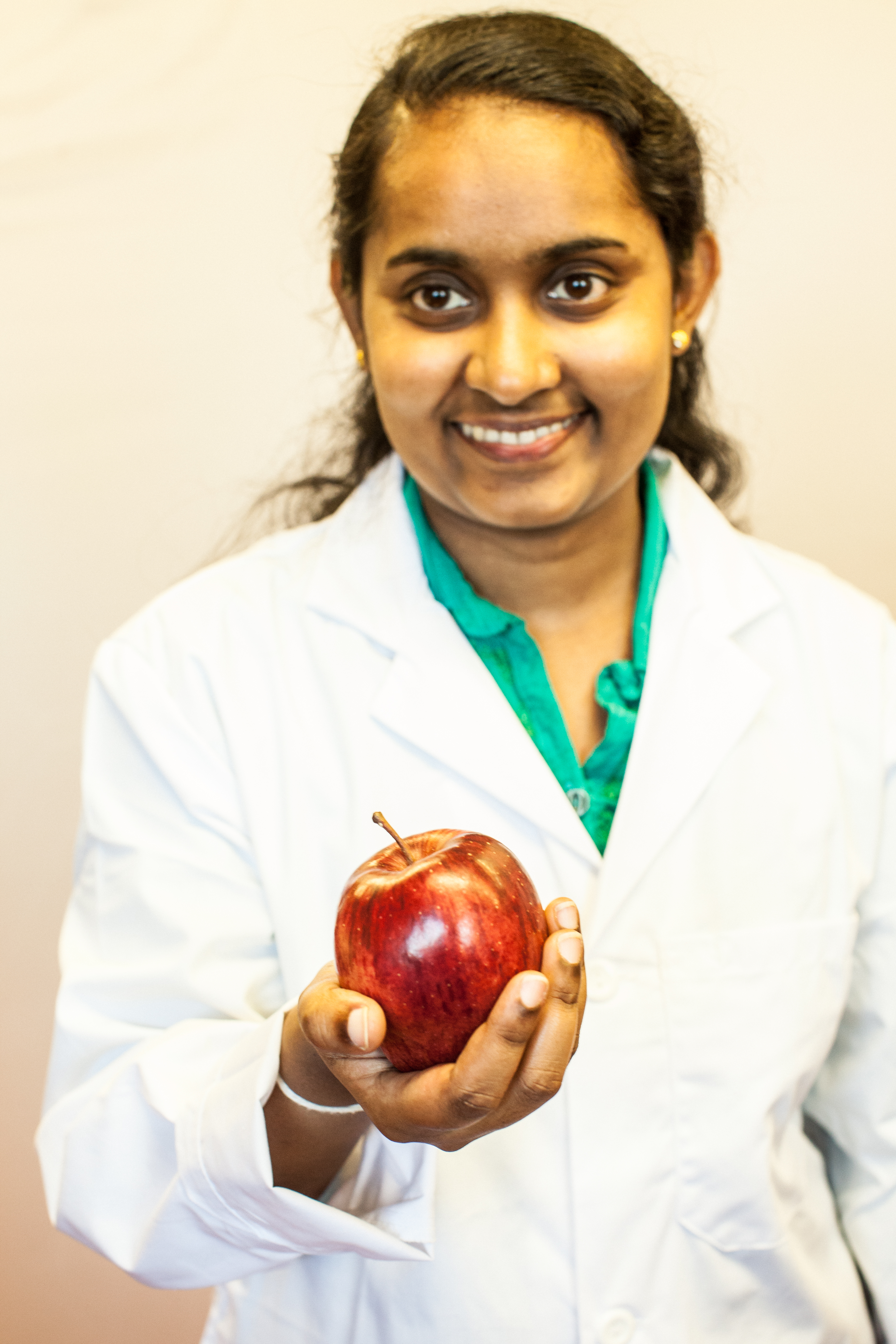Media Releases
» Go to news mainBreast Cancer research no longer just a dream for one Dalhousie Faculty of Agriculture student
Wasundara (Wasu) Fernando, under the supervision of Dr. Vasantha Rupasinghe, recently received the Beatrice Hunter Cancer Research Training Program award for her work studying molecules in certain foods that could potentially treat breast cancer.
Key Points:
Supported by the Terry Fox Strategic Health Research Training Program in Cancer Research in the Canadian Institutes of Health Research, the program is offered twice each year to a limited number of students who are involved in cancer research at a recognized institute in Atlantic Canada. Fernando was the only recipient from Dalhousie University.
Born in Sri Lanka and now a Master’s degree student at Dalhousie University’s Faculty of Agriculture and under the supervision of Dr. Vasantha Rupasinghe, Wasu is studying molecules in certain foods that could potentially treat breast cancer. More specifically, she is investigating anti-cancer properties found in natural compounds of apples and fish oil that can be combined to treat triple negative breast cancer.
Triple negative breast cancer is a form of breast cancer that tests negative for estrogen receptors, progesterone receptors and human epidermal growth factor receptors. It is reported that triple negative breast cancer has a low prognosis and it cannot be treated by hormone therapy or Human Epidermal Growth Factor Receptor 2 therapy. Wasu is looking at other ways to treat this type of breast cancer.
Wasu plans to expand her research to both triple negative breast cancer and estrogen dependent breast cancers. She hopes to apply her research beyond Canada.
Pull Quotes:
“Nearly 15% of all types of invasive breast cancer are triple negative breast cancers,” Wasu explains. “I’m looking at certain compounds found in natural food products that can be used to treat the disease.” Wasundara Fernando, Master's student, Dalhousie Faculty of Agriculture.
“I’m looking at a combination of two components,” Wasu explains. “One from apple peels and one from fish oil and investigating their anti-cancer properties to see how they can act against triple negative breast cancer.” Wasundara Fernando, Master's student, Dalhousie Faculty of Agriculture.
- “In my thesis research, my findings so far indicate that the combinations of these compounds do in fact show promise as a treatment for triple negative breast cancer.” Wasundara Fernando, Master's student, Dalhousie Faculty of Agriculture.
Images:
 |
Photo Credit: Download Hi-Res image |
 |
Wasundara Fernando Photo Credit: Download Hi-Res image |
 |
Apple peel Photo Credit: Download Hi-Res image |
Contacts:
- Stephanie Rogers, Communications Manager, Dalhousie Agricultural Campus 902.893.7247 s.rogers@dal.ca
Recent News
- Media release: Nova Scotia pharmacists among Canada’s first to prescribe HIV prevention drug with help from Dalhousie pilot study
- Media opportunity: What do you need to make a hit song? Math, according to a Dalhousie University mathematician who created a pop song using fractals, the cantor set and all things mathy
- Media opportunity: Uncovering the link between meltwater and groundwater in mountain regions is a priority for sustainable water management: international research paper
- Media opportunity: Fish biomass faces steep declines by end of century under high‑emissions scenario: FAO report by Dalhousie University, international scientists
- Media Release: Two Dalhousie students selected as McCall MacBain International Fellows
- Media release: Barriers to care ‑ research reveals the experiences of transgender and gender‑diverse people seeking health care
- Media opportunity: Being involved in extracurricular activities really does matter when it comes to 'mattering': Dalhousie University research
- Media opportunity: Podcast by Dalhousie researcher and Halifax photographer looks at barriers to Nova Scotia's coastline, decreasing access to waterfronts and problems with litter, marine debris in public coastal areas
